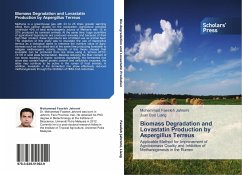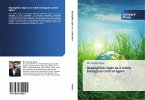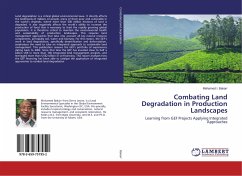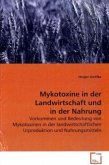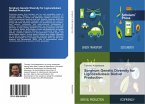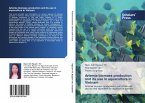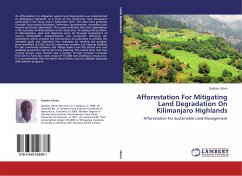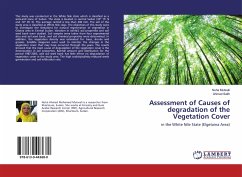Methane is a greenhouse gas with 23 to 25 times greater warming effect than carbon dioxide on the ecosystem. Agricultural activities contribute 40% of total anthropogenic source of Methane with 15 to 20% produced by ruminant animals. At the same time, huge quantities of agricultural byproducts are produced annually and because of their high fiber content, these byproducts are of limited use as animal feed. The objective of this study was to elucidate the use of Aspergillus terreus as a biological agent to enhance the nutritive value of agro-biomass such as rice straw and at the same time producing lovastatin to mitigate methanogens activity. Results of this thesis showed that lovastatin can be produced from rice straw using A. terreus ATCC 74135 in solid state fermentation. Besides reducing the fiber content of rice straw resulting in higher nutrients digestibility, the fermented rice straw also contain higher protein content and cellulolytic enzymes, the latter may continue to be active in the rumen of host animals. In addition, lovastatin in the fermented rice straw effectively reduced methanogenesis through the inhibition of HMG-CoA reductase.
Bitte wählen Sie Ihr Anliegen aus.
Rechnungen
Retourenschein anfordern
Bestellstatus
Storno

